Prime Minister Narendra Modi has always been tough on terror — his decision to carry out the surgical strikes in 2016 only reasserted his stance.
He has often lashed out at the Opposition for their soft attitude towards terrorism. In fact on Sunday during a poll rally in Hardoi, he referred to the 2008 Ahmedabad serial blasts, which claimed 56 lives and left more than 200 people injured, and said some parties were sympathetic towards terrorists. In his address, he accused the former UP government of seeking to withdraw cases against terrorists.
For the unversed, on 18 February, a special court in Ahmedabad had sentenced to death 38 members of the terror outfit Indian Mujahideen in the 2008 serial blasts case. The court also sentenced 11 other convicts to life imprisonment.
Let’s take a look at Narendra Modi’s record as the chief minister of Gujarat and then as prime minister on terror and terror incidents.
As Gujarat chief minister
Narendra Modi took charge of Gujarat in 2001 at a time when smuggling and gangster-related activities were at an all-time high in the state.
In 2002, two terrorists attacked the Swaminarayan Akshardham complex in Gandhinagar, Gujarat, India, killing 33 and injuring more than 80. As chief minister, Narendra Modi swiftly called for the action of the National Security Guard and the siege ended the next day when both terrorists were killed.
Modi was praised for his handling of the crisis and it also propelled him to a mammoth victory in the Assembly elections held that very year, despite election experts predicting otherwise.
In 2008, his strong will to tackle terrorism came to the fore once again. It was the year that a series of blasts rocked the country, especially in the hinterland of Delhi, Jaipur, Bengaluru and Malegaon.
The Modi government in Gujarat, at that time, realised that the nationwide terrorist networks needed to be destroyed instead of focusing on just one act.
Following the Ahmedabad serial blasts in 2008, itself, his administration displayed strong willpower to investigate the incident, which experts had stated had several links with other states. However, it was reported that governments in some of them were hostile to Gujarat’s attempt to bring perpetrators to justice.
Sources close to the probe have said that the Gujarat Police faced stiff resistance in bringing the blast mastermind to Gujarat from Uttar Pradesh’s Azamgarh, which was under chief minister Mayawati at that time.
It was under Modi’s leadership that Gujarat’s crime rate fell drastically. Additionally, Modi also helped Gujarat in shedding its ‘curfew capital’ tag and gaining the identity of being a safe and secure state.
It was in Modi’s rule that strict laws like the Gujarat Control of Terrorism and Organised Crime Act {GUJCTOC} and Gujarat Goonda and Anti-social Activities (Prevention) Act came into existence that strengthened the state police and helped in curbing crimes.
The GUJCTOC provides for the admissibility of evidence collected through interception of mobile calls of an accused or through confessions made before an investigating officer, in a court of law. It also extended the period of the probe from a stipulated 90 days to 180 days before the filing of chargesheet.
As chief minister, Narendra Modi broke the Indian Mujahideen {IM} and SIMI terror network not just in Gujarat but the entire country. The work on the Ahmedabad blasts by the Gujarat government gave leads and tip-offs in several other investigations being carried out into the terror attacks by IM in 2008.
According to a Times of India article, the Gujarat Police leads helped in tracing terrorists in Batla House in New Delhi and the decimation of IM.
The sources said the Gujarat administration also set up a diligent case that led to multiple convictions in the Ahmedabad blast case.
PM’s record against terror
Prior to Narendra Modi’s elevation to the prime minister, the country under the United Progressive Alliance government witnessed several terror attacks.
According to data provided by the South Asia Terrorism portal, as of 2013, 205 of the country’s 608 districts were affected by terrorist activity.
In 2008, India saw what many label as its worst terror attack the 26/11 Mumbai siege, in which 10 gunmen connected to Lashkar-e-Taiba targeted civilians at numerous sites in the southern part of Mumbai, including Chhatrapati Shivaji railway station, the popular Leopold Café, two hospitals, and a theatre. While most of the attacks ended within a few hours, the terror continued to unfold at three locations where hostages were taken — the Nariman House, where a Jewish outreach centre was located, and the luxury hotels Oberoi Trident and Taj Mahal Palace & Tower.
After almost four days, the siege came to an end and the final death toll was pegged at 174 people, including 20 security force personnel and 26 foreign nationals and more than 300 people were injured.
However, the picture looks a bit different since 2014 when Narendra Modi took control of the country. As per data provided by South Asia Terrorism Portal, there has been a stark reduction in terrorist attacks that have happened outside of Jammu and Kashmir, Punjab and Northeast after 2014.
Narendra Modi’s strategy against terrorism has involved international diplomacy, giving free hand to the Armed Forces, calling out the nuclear bluff of Pakistan and bringing terror as a topic of discussion at the high table of G20.
He has strengthened the powers of investigation agencies by adding more bite to The NIA (Amendment) Act 2019 and Unlawful Activities (Prevention) Amendment Act 2019. He also abrogated Article 370 and streamlined the Border Security Force to make it more effective.
Unlike the past, where the Armed Forces complained of not receiving political backing in matters of terrorism, Narendra Modi extended his support and gave the Armed Forces a free hand when it came to the handling of terrorism.
Instances of the Indian Army’s operations in Myanmar, crossing the Line of Control into Pakistan to avenge the Uri attacks and the Balakot airstrikes are examples of Narendra Modi’s support to the Armed Forces.
The figures from the home ministry also show that Modi has been effective in tackling terrorism.
As per official data, incidents of Left-Wing Extremism {LWE} reduced by 70 per cent from an all-time high of 2,258 in 2009 to 665 in 2020.
In Jammu and Kashmir, 849 incidents of terror were reported between April 2017 and August 2019, and the activities nearly halved between August 2019 and November 2021 to 496. Northeast also witnessed unprecedented transformation with 824 incidents of violence reported in 2014, which slumped to 162 in 2020. There have been 80 per cent drop in insurgency incidents between 2014 and 2020.
Agencies such as the National Investigation Agency have also been strengthened across the country. The budget for the modernisation of police forces focusing on modern technology, forensics was Rs 26, 275 crore alone in 2021-22.
The government is also actively hitting the finances of terror organisations. The government froze assets of Dawood Ibrahim. There has been an additional crackdown on narcotics and drugs.
Tackling terrorism through diplomacy
Besides strengthening the Armed Forces, Narendra Modi has also been a world leader that has always raised the issue of terrorism on a global stage.
He was the first to throw light on the narrative that there is no good and bad terror. In his maiden speech at the United Nations General Assembly in 2014, he reminded the world of the obligation to remove all kinds of terror.
At the Shanghai Cooperation Organization {SCO} last year, Modi stressed the developments in Afghanistan after the US troops withdrawal and resurgence of the Taliban.
The BRICS (Brazil, Russia, India, China and South Africa) summit adopted the counter-terrorism action plan under the leadership of Modi in 2021.
(First Post)

Readers like you, make ESHADOOT work possible. We need your support to deliver quality and positive news about India and Indian diaspora - and to keep it open for everyone. Your support is essential to continue our efforts. Every contribution, however big or small, is so valuable for our future.

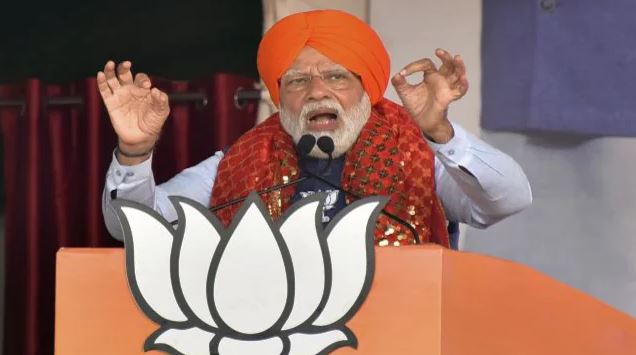

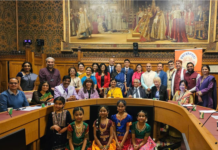
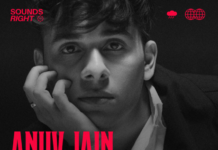
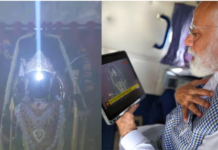

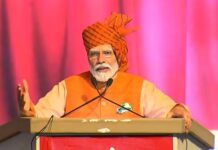
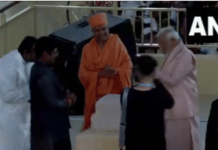




Action says louder than words and no one can match Modiji in his stance against heartless terrorists perpetrating violence against innocent civilians. May he win another term as PM and show the rest of the world how it is done rather the softly western governments who burdened with so-called liberal laws give shelter to the very people who are hell-bent on killing their citizens